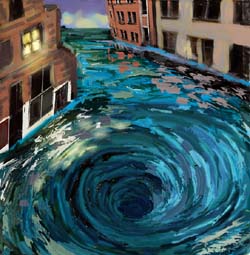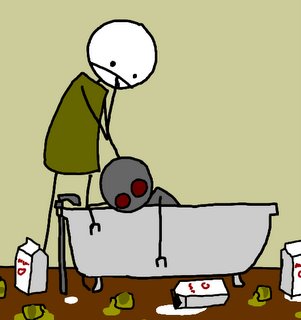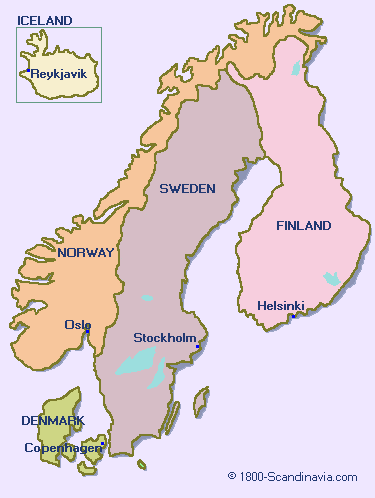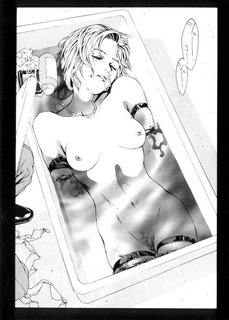"semiotic fluid"
these two words came together in my head this morning. i think they glanced at each other during that time i spend each morning sleeping in 9 minute increments trying to repeat any pleasant dreams. i was riding the bus and looking at the lake when they decided to really give it a go as a couple. of course then i was just hoping a
special spam with both of them would be waiting for me in my inbox so i could use the phrase in a poem.
Q: what does wendy do when words mate in her mind?
A: she investigates other minds that had the same thought.
Q: does wendy enjoy employing the third person?
A: sometimes.
[aside: "(Keep Feeling) Fascination" by The Human League is annoying in its repetition, rather hard to make any real sense of, and yet I like it immensely when the deep voice says "and so the conversation turned until the sun went down, and many fantasies were heard on that day."]
i'll trust you're competent enough to go to google or some such place and search on "semiotic fluid" if you're really that interested in all of the results. in the meantime, here are the two that intrigued me the most.
(1)
there's an article [citation: Milburn, Colin "Nano/Splatter: Disintegrating the Postbiological Body" New Literary History - Volume 36, Number 2, Spring 2005, pp. 283-311 The Johns Hopkins University Press] which you cannot read online. i can because i hobknob with librarians. if you ever need a full text academic article, give a ring to your local library. if you'd like to read this particular article let me know. i haven't read it yet but i found the instance of my words:
"Splatter," in the vocabulary of literary and cinematic horror, has come to refer to a representational moment in which the human body is violently torn asunder, shredded, sliced, hacked, dismembered, melted, and transformed, splattered as semiotic fluid into ghastly forms of monstrous abjection. As the defining motif of "splatterpunk" fictionrepresented by the wettest productions of auteurs such as Clive Barker, Poppy Z. Brite, John Shirley, Edward Lee, George Romero, Lucio Fulci, David Cronenberg, and Peter Jacksonsplatter is the figural mechanism through which narratives of "extreme horror" create meaning: in these texts, "mutilation is the message." By disrupting the body's boundaries and the social codes adhering to them, splatter viciously unsettles the economies of corporealization, and Jay McRoy has argued that at the moment of splatter, the "spectacular and graphic deconstruction/transformation of the 'human' form" enacts a radical revision of normative embodiment, suggesting possibilities of somatic experience other than those encountered in the historical accident of human morphology. Or, as Judith Halberstam has written, the bodies that "emerge triumphant at the gory conclusion of a splatter film are literally posthuman, they punish the limits of the human body and they mark identities as always stitched, sutured, bloody at the seams, and completely beyond the limits and the reaches of an impotent humanism.
this is pretty darn interesting to me given i've spent the past two years focusing most of my film watching on cronenberg, giallo (italian horror genre), and miike(japanese horror director) films. neat coincidence, and for now unfathomable.
(2)
there's something called the "
book of knots" which is the manual for an RPG (role-playing game if you're not as familiar with nerds as am i) called Wonderland based on the writings of lewis carroll.
i find myself musing about the writings of lewis carroll often. i cannot plumb this manual's text well enough to find my "semiotic fluid", if you do please let me know. i did glance at the secret history of the end of the universe. i did brush against the person known as the clear widow and wonder if i am she. i saw the words
We Know It is Called The Department of Works in bold and was reminded of the book "the third policeman" and the movie "the falls" in a pleasant fashion. i noted the words "vacuum" and "common sense". but the only thing that grabbed me for more than a few pages was a sidebar about the caretakers. lesson learned: sidebars have sticking power. i believe that everything that follows references back to
Caretakers. as a frame of reference, i believe everyone that alice meets in her adventure is considered a
Caretaker. i believe that humans meet
Caretakers during their "descent", and that this is known as The Royal Drama. are you ready?
A caretaker is
Mad
Because he sees the world, not
as it is but as he wishes it would
be. And for millions and millions
of years, the world has bent to
conform to his delusions.
The Eye of the Storm
Because she believes herself
to be physical thing, while her
infl uence roars around her,
corrupting, perverting, and
degrading everything within her
sphere.
Munifi cent
Because he has everything he
could ever desire and yet can
still be bigger by demonstrating
his largess.
A Petty Bastard
Because she knows she has
limits and they make her furious
and when she sees weakness and
mortality in others it reminds of
things that she hates in herself.
Paradoxes with Opposing Poles
Each Caretaker is obsessed
with something and repelled by
something else. Sometimes these
are polar opposites. Sometimes
these are the same things. And
these things are represent deep,
universal truths that would be
enlightening if one could see
through the
pageantry, rage, and distortion.
The Queen of Hearts has
sacrifi ced millions upon the altar
of the rules, but violates their
spirit with every psychotic deed.
The Duchess of Knots is
ensnared in storm of
maddening change and
tumultuous chaos, but
sponsors a massive, dark
bureaucracy whose rules and
bylaws and dusty fi les consign
those caught in its grip to stasis.
The Liebrarian worships the
sanctity of truth, while residing
over an infi nite collection of
blasphemy and perversity. She
seeks ordinal mastery over
the un-ordered and cardinal
understanding of the unnumbered.
She is a keeper of
knowledge so wrapped in lies, it
provides uncertainty.
Darker things less human rule
over chasms dedicated mirth that
are fi lled with weeping.
The Factory is, in itself the
means of production the
engines of capitalism, but they
vomit up resources without
scarcity: the utopian dream.
Full of Hatred
In a refi ned, civilized way, they
hate everything, and it gnaws at
them.
well, that's about it.
 Cowards Bend The Knee
Cowards Bend The Knee











